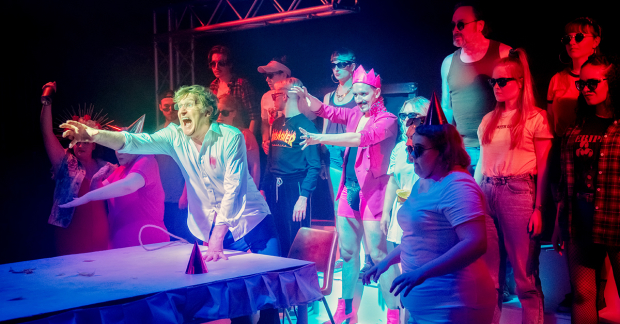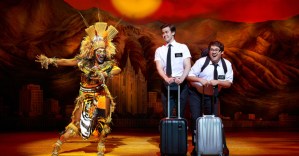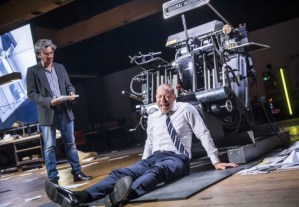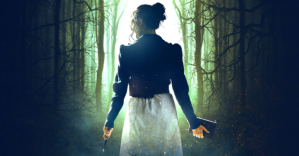Review: Jerry Springer: The Opera (Hope Mill Theatre)
The iconic Olivier Award-winning musical is revived in Manchester

© Anthony Robling
Newly-founded theatrical company Northern Ricochet have shown a degree of courage in the choice for its first production as a collective. Based on the American tabloid show of the same name, Jerry Springer: The Opera is certainly not a musical short on controversy; when a BBC2 television broadcast was made of the musical in 2005, 55,000 complaints were reported. To place that number into context, only 67 complaints were made about the Sachsgate radio broadcast, which of course led the BBC to sack both Jonathan Ross and Russell Brand. Written and scored by Richard Thomas in 2003, with additional lyrics from comedian Stewart Lee, this musical is revived in Manchester's Hope Mill Theatre.
To begin positively, it must be said that the musical's design is excellent. Victoria Hinton-Albrieux (set and costume designer) deserves praise for what is undoubtedly the finest aspect of this production. Splitting the audience and placing the stage between the two crowds enhance the sense of actually being on Jerry's live television show. Furthermore, during the purgatory scenes, the colours and props successfully mimic a sort of trippy Fear and Loathing in Las Vegas palette. Lurid pinks and bright colours help to engineer a headspace where watching scantily-clad figures of Jesus and Satan slap each other does not seem particularly strange.
Unfortunately, other aspects of the performance are either poor to begin with or deteriorate over the two and a half hour running time. The first thing to note is that on a technical level, the volume is just too high. Sound dynamics are all over the place which ultimately has a massive impact upon the clarity of singing – it is consistently challenging to decipher what characters are actually saying.
Whilst the juxtaposition of operatic singing and trailer trash topics is funny to begin with, the repetitive irony ceases to amuse midway through the second act. There is arguably only so much vibrato that should be in a musical and this production has no idea where to draw the line. Jerry's spoken words are a merciful relief in the first act, as Michael Howe performs admirably as the host and lead. The piece is at its best as Howe weaves and directs the onstage shenanigans with witty remarks and questions.
Given Howe's performance is one of the saving graces in the first hour, it is disappointing that even his character fades in the second act. As the quality of jokes dissolves, so does the level of enjoyment for this production. There is nothing innately wrong with a play that contains a great deal of irreverence for the established order but when a script relies so heavily on this alone for comic effect, and not clever puns or dialogue, it can become tiresome quickly. Although 55,000 people would disagree with the following argument, blasphemy is not the singular issue with Jerry Springer: The Opera; it is the fact that gratuitous mockery and profanity cannot mask a script and a story that is simply tedious by the end.




















